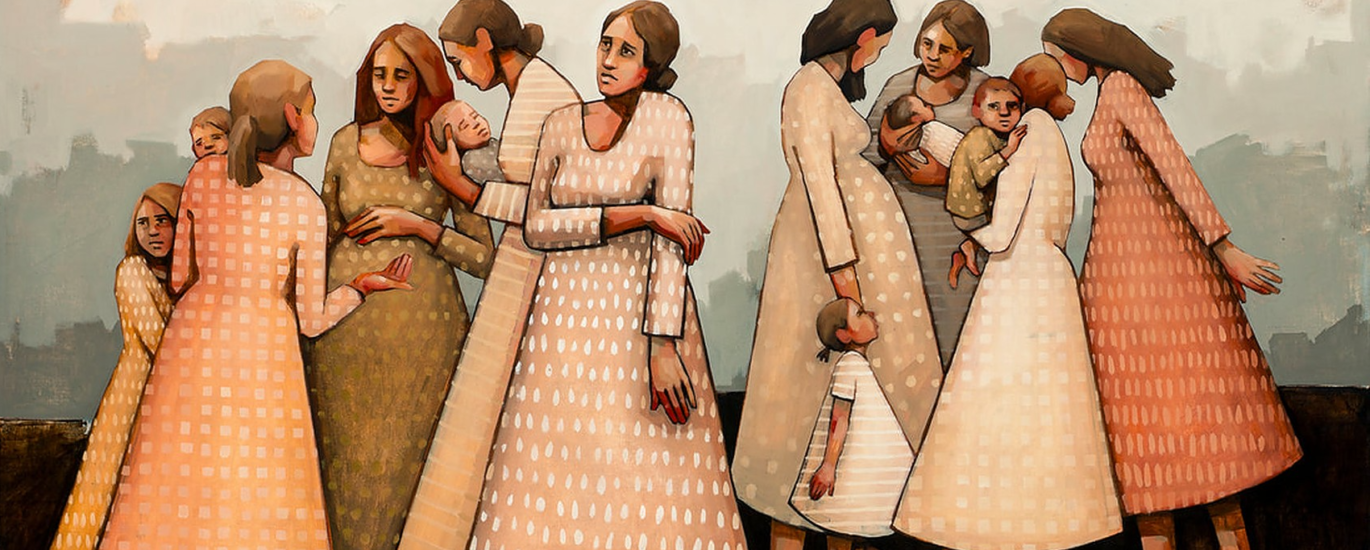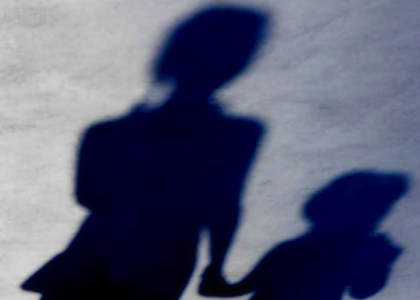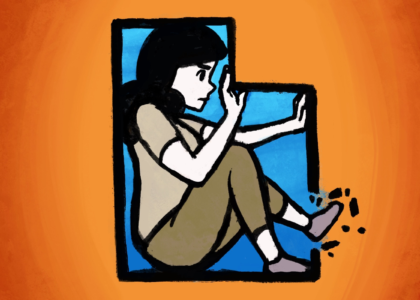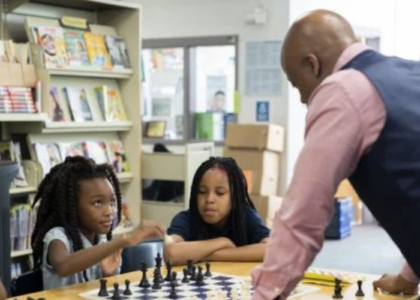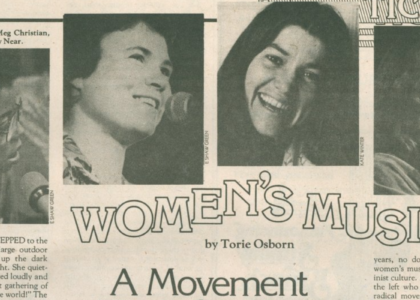“Why did I need a man to be my conduit to the heavens?”
Earlier this year, our podcast began a project of collecting, publishing, and elevating people’s stories about patriarchy, and when we got word out that we were soliciting contributions, we received an overflow of messages from women raised in the Church of Jesus Christ of Latter-Day Saints. We are so grateful for all the stories that found their way to us.
In today’s episode, we hear from Ashley Mae Hoiland and Courtney McPhie, as well as an Anonymous Contributor who help us explore the impacts of LDS patriarchy in their own lives.
Our Guests
Ashley Mae Hoiland

Ashley Mae Hoiland (she/her) is the author of One Hundred Birds Taught me To Fly, A New Constellation and several children’s books. She lives in Provo, Utah with her three kids, geologist husband, dog and bearded dragon. She has an MFA in creative writing and teaches writing classes online at MineToTell.com
Courtney McPhie (she/her) experienced a typical awakening to social justice in high school, but took until college to call herself a feminist. A voracious reader and podcast-listener, Courtney lives in Northern Virginia, in the DC Metro area. She completed her graduate studies at George Mason University and holds a masters degree in education, which she uses as a high school English teacher in Fairfax County. She works largely with English Language Learners, mostly asylum-seekers who have come from Central America in the last three years. Courtney lives with her husband and three cute kids in a Colonial house on a hill.
Courtney McPhie

Our Voice Performer
Deanna Nokes

Deanna Nokes (she/her) is an Event Director living in Los Angeles. She has done voiceover for an Annie Award nominated series called Human Kind Of. She loves movies, cooking and binge-watching TV shows with her cat Emma.
.
Ashley Mae Hoiland
The story that unfolds in the next paragraphs does not reside, wholly, in a painful part of my memory. In fact, so much of this time, being a part of a religion in my growing up years, was beautiful to me. I was held by people in the church, not the doctrine of that church. Though my heart, even at this tender age, even in an era where it wasn’t normalized, sensed that something was not right. Some freedom, some delicate wildness was not being nurtured. The patriarchy that upholds the church that raised me needed my compliance, needed me to take a passenger seat in order to continue to thrive. As much as I did not see this then, my body knew it. My body never stopped speaking to me, even when I wasn’t ready to listen.
Eight of us girls, and four leaders not much older than us, are in the church building on a Wednesday night. My friend is with me, standing a full foot shorter, but wiry with fierceness. Her parents immigrated from South Korea and are always at their clothing store, and so, she is always with me. My little sister— who is already interested in trouble and often doesn’t take the sacrament when it passes along our row on Sunday—is with me as well. Six other girls, some there because their mothers made them, and some because this is where they have friends, are gathered with us in that church.
Our four leaders are there as well. One, a half decade older than me, married last Christmas break. These women seem beautiful and put together, but I hear them talking together when they think we aren’t listening, giddily complaining about husbands and nap times. Finally, there are six children, all under the age of five, who run through the carpeted halls. The young children of the leaders who planned this activity. This is all so familiar, this routine, this movement, getting to work amidst chaos.
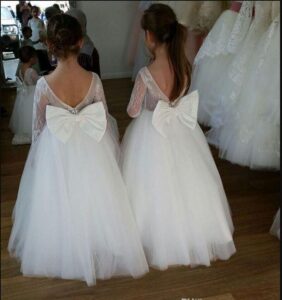
On the backs of the padded folding chairs are three wedding dresses, laid out carefully. They are still on hangers, pulled down from the backs of closets, some worn just years ago. There is lace, satin, little buttons and ties and taffeta. All white, all with sleeves, some altered to make a plunging neckline now hover modestly. I would not have picked any of these dresses to be married in. I was never one to ask for attention, even when I was supposed to want it. But laying here, in this room, it is clear that the dresses are symbols, they are a prize. The four leaders have already won.
Some of the younger girls are giddy at the idea of trying on the dresses, they take off their shoes and step inside. The older women zip up the backs, and the bottom skirts of white pool around the younger girls on the floor. One woman has a camera with a professional lens. My friend cannot keep any of the dresses on her shoulders, the lacy fabric billowing beyond her flat chest. We look at each other as a leader bends down to tie something, and we roll our eyes. I watch my friend accept a bouquet of white lilies and drape them across her arms. No one sees that this is comical. In the nearby church gym, the shouts of teenage boys playing basketball echo through the hallways.
I am in my soccer shorts from practice. My calves still imprinted with shin guard marks. I do not have a boyfriend, have not kissed a boy, am doing my best to pretend that my body doesn’t exist in ways that other people can see it. I help the younger girls in and out of the dresses, kneeling behind them to button the tiny satin rows. I am on the same level as the young children, and I stop to play with them. I walk to the hallway drinking fountain and lean to peer in the half open door of the gym. Those boys would never be asked to try on tuxedos and imagine themselves as fathers at this age. I know this.
I walk the long way around the church building back to the room. I catch one of the children and carry them back to her mother. Perhaps she, too, is devising a way to break free.
In the room, I am the last one to try on a dress. The leaders, older than me by less than a decade, gather around. They are not intimidating, but insistent, and I am still too nice to decline.
With my soccer shorts still on, I step into the dress that seems to be the largest size. I shimmy it up over my hips and let my shorts fall to the floor. I pull my shirt over my head, glancing toward the closed door for signs of one of the boys coming to see what we are doing. The boys are still playing basketball, not thinking about the girls in the other room who are already imagining which one of them they might marry.
Earlier that summer, in the basement of a friend’s house, one of those boys had crawled his hand up my shirt while he thought I was sleeping. I did nothing, frozen in time, falling through a black hole. I told no one, but the guilt still rolled along the bottom of my stomach like a stone. I know I’ll need to confess to the bishop at some point.
the church that raised me needed my compliance, needed me to take a passenger seat in order to continue to thrive…
My heart sinks as the white satin shoulders sit snugly against my skin. This dress is too small. It is not even close to being able to zip up in the back. My leaders, quick to hide their panic, gather behind me to attempt a zipper, a button, a clasp but I can feel the air on my back, I can feel pink underwear sticking above the open zipper of the dress. They gently move me in front of the off white, heavy curtain that hangs in front of the frosted glass windows, a row of perfectly trimmed hedges just outside. I should have known the dress would not fit as I see them standing in a half circle around me. My body anticipated this, but somehow, my mind had not.
They place tired lilies in my arms and angle me so it looks like the dress fits. The photographer works quickly, snapping black and white shots. My hair hangs in a messy ponytail. I wear the juvenile round of make-up that the most popular girl there had applied while I waited for the girl in front of me to finish with her photos. My round, teenage face looks back at me as I stare down barrel of the lens.
One of the children opens the door, the session is over. I step out of the dress, peeling it off of my shoulders and letting it drop to the floor.
My own clothes back on—their roominess a comfort—I eat just one of the homemade cookies the leaders have brought in a Tupperware, still warm from the oven. I’d love two or three, but I am already feeling achingly large.
My heart chafes against the fact that I am not playing basketball instead, that I am sixteen and planning a career that will be allow me to be a stay-at-home mother, against the fact that I will never have the priesthood, but will forever play a silent role, and still, it is everything I know. I love the god that roams the halls of this church.
The leaders gather up their dresses and their children, trying to keep them from getting sticky hands on the white fabric. They turn out the lights in the empty rooms, the padded folding chairs stacked against the walls. The girls leave at the same time as the boys. The boys are sweaty and wild, whooping through the halls and pushing hard on the handles to the swinging glass doors before they run out into the night.
I want to follow them, want to be wild and carefree, but I can’t shake the feeling of not fitting into that dress, of being too big for everything, of my inability to stop taking up space, no matter how willing I make myself.
Anonymous
The first time I heard Taylor Swift’s song “Look What You Made Me Do” I heard one of the phrases incorrectly. What I heard was “I trust my body and my body trusts me.” I stopped right where I was, and out of nowhere, immediately started to cry. My body doesn’t trust me at all. And why would it?
Chapter 1: Childhood
I grew up in a middle-class suburb of a city in the Western United States in the 1990’s. I was raised in a committed Christian household where religion encompassed and determined every aspect of our lives. We went to church services every Sunday and church activities during the week, and I loved it. I ate it up. Whatever they said, I took into my earnest little heart and drank it into my cells. I loved God the Father and I loved Jesus Christ and I lived the words of the prophets to the best of my ability. I wouldn’t notice until much, much later that God the Father, God the Son, and God the Holy Spirit were all referred to as men, with exclusively masculine pronouns. All the prophets? Men. All the pastors, ministers, every single leader at church? Men. The leader of my family, seated at the head of the table? A man. And of course almost all the secular leaders were men as well: teachers were women but principals were men. Nurses were women, but doctors were men. Flight attendants were women, but pilots were men. Moms drove the station wagons when the dads weren’t around, but as soon as the dads came home they took the wheel. In every sense. I learned in a thousand small ways, every single day, to look for safety and permission and approval to the people who were in charge of the world and the gatekeepers of heaven, and they were all, every single one of them, men.
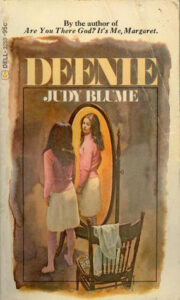
My mom told me I was beautiful a lot. She was also beautiful – my dad talked often about how beautiful she was and how everyone in their high school had wanted to date her because she was “as beautiful as a beauty queen, but without the attitude.” My mom was also really skinny. One time when I was about 5, I remember sitting on her bathroom counter while she put on her makeup and my mom pinched my belly and told me I was getting chubby. I was filled from head to toe with a burning, searing shame that I can still feel to this day. It wouldn’t dawn on me until much later that it wasn’t just being called “chubby” that was the problem. In other cultures that would have been a compliment, a source of pride. But I felt my mother’s embarrassment of me, and I had seen enough magazine covers by then, placed right at my eye-level in grocery stores, to know that there were few things worse to be in this world, especially as a girl, than fat.
I was a sexual little kid. I don’t know how I picked up the message that I shouldn’t think those thoughts or feel those feelings, but every time I thought about naked bodies or got that tingly feeling when I saw a racy TV commercial, I remember feeling excited… and then immediately ashamed. My dad called a leg a leg and an elbow an elbow, but there were certain parts of the body that were not allowed to be uttered. My brother could call his penis a penis and run around naked and we would all laugh… but the girls’ bodies stayed covered and unspoken.
By about 5th grade I discovered Judy Blume books in my elementary school library. What a God-send! Or Devil-send? Probably a Devil-send, because I knew I was the vilest sinner ever to tarnish the earth when I read them, but read them I did, over and over, every single volume. They were a little outdated, but I wore out the pages describing boobs and periods and—gasp! Masturbation! As it turned out, the thing I did before I fell asleep sometimes had a name! And other bad kids, like Deenie in the Judy Blume book, did it too! For sure by then I had heard sermons about sexual impurity—my pastor had definitely taught our youth group that masturbation was a sin.
I felt terrible about it, so when the urge possessed me, I would try to think about other things. It was like a little fire inside me that begged me to pay attention to it, but the church men told me it was bad, so I ignored it, I threw water on it, I suffocated it. And when I did give in and felt it come alive, I covered it in dirt and told it that it was bad and that I would never do it again. When my body would tell me it wanted to keep that fire alive, I learned not to listen. I shut it down.
Chapter 2: Teenage Years
I remember the first time I starved myself. I was babysitting at a neighbors’ house and it was getting close to dinner time. I was super hungry, not having eaten anything since I’d had a bowl of Raisin Bran for breakfast, but as I went to put some frozen pizzas in the oven for me and the kids, I thought, “Wait, if I don’t eat dinner, and all I eat today is just that Raisin Bran, I would be skinnier tomorrow! So I didn’t eat the pizza, and I did wake up skinnier. It felt great, so when my body would say “I’m hungry,” I learned to not listen. I shut it down. I noticed that I got a lot of attention from boys, and the skinnier I was, the more attention I got.
One time my dad told me the parable of the grocery store apple—you know, where you see a beautiful shiny apple, but when you pick it up you see it’s all bruised and gross on the other side. “If a guy likes a girl, but then learns that she’s been manhandled by someone else, he won’t want that ‘apple’ anymore,” he said. And I heard versions of that metaphor over and over again throughout my teen years—a Sunday School teacher would chew a piece of gum, then ask who else wanted to chew it. “Ewww,” the class would say. A youth pastor would pound nails into a board in front of a bunch of teenage girls and then explain how if Christ could get the nails out if we let a boy damage us, but we would always be full of holes. Our paster’s son told me his dad had taught him, “If you were about to eat a sandwich and you found out that some other guy had licked it, would you want to eat that sandwich?” “Gross, no,” he replied. “Just remember, every girl you meet is going to be someone else’s wife some day. Don’t lick some other guy’s sandwich.”
In 9th grade an older guy asked me out. I didn’t like him the way he liked me, but he was persistent and I was flattered because he was older and an athlete with super popular friends. I was brand-new to high school, so when he asked me and my friends to his Halloween party I was elated to be chosen by a bunch of older, cooler guys. That night we all ended up in his basement, and somehow I found myself in a dark corner where he pinned me down on a bed and started making out with my face. I turned and said “I don’t really….” and “Can you get off…” and “Can we go do something else,” but he just kept going. My body was yelling “NO.” My mouth was saying “Um, can we… Um, I don’t think…” until finally he let me up. I talked and laughed with my friends for the rest of the night, and then went home, whispered to my parents that I was home, and then sat on our tan corduroy armchair with my arms wrapped around my knees and cried and cried and cried and cried.
…remember, every girl you meet is going to be someone else’s wife some day.
I don’t know why I kept going out with that guy. Maybe because my dad was gone a lot and I was looking for love and safety and approval wherever I could find it. I honestly don’t know. But that guy whom I didn’t even like became my boyfriend. At every sexual step that he pushed on me, my body said “NO.” But I didn’t listen. I would float above my body, just watching it happen, listening to myself say things like “I don’t think… Um maybe not right now… Ok please stop…” while he just kept doing whatever he wanted to me. The day he had sex with me—I can’t really call it me having sex because I was so completely passive—I went home afterward and thought, “Well, I guess I’m ruined now.” But I didn’t even cry. I felt absolutely nothing.
My dad was strict about clothes, so I learned to wear what he wanted me to wear out the door to school and to dances, and to bring the clothes that my boyfriend liked in my backpack and change into them later. It didn’t occur to me then—not even once—to ask myself what I wanted to wear to school or to prom. My dad wanted me in pure-godly/his-little-girl clothes, and he would be happy with me if I conformed and furious at me if I didn’t, so I wore pants and loose shirts as I walked out the door. My boyfriend loved to brag to his friends about my body (and he had cheated on me with a few of my friends; I knew I had to please him to compete), so I changed into tight shirts and short shorts once I got to school.
Every few months all the teenagers would have sexual worthiness interviews, where we would sit across a large wooden desk from our minister and he would ask us specific questions about masturbation, sexual experiences, and even sexual thoughts. We had to confess any transgressions and he would tell us what to do to repent, such as abstaining from certain church activities because we were unworthy. I would lie my way through those interviews, smiling and keeping up the façade that I was a “good” girl and not a rotten apple. I convinced myself that it wasn’t really me that had done those things… and honestly, in my rational mind I really felt like it wasn’t. But my heart would pound during those interviews. My body knew.
I grew up knowing my mom’s story that when she was a teenager she had weighed 115 pounds, but she hated how her chubby tummy would hang over the waist band of her tights, so she lost 20 pounds and never ever weighed over 95 pounds again. (Except in pregnancy, she would add, but even then she made sure she lost the weight right away.) I heard that story so many times. Every day my mom wrote her weight on her calendar. 90.2. 90.3. 90.5. 90.0. My weight went up and down a lot, and every now and then my stifled hunger would get the better of me and I would overeat. Whenever my weight crept up to the dreaded mark of 115 pounds, I would starve myself again.
Chapter 3: College
Eventually I left my high school boyfriend behind (he punched a hole in a wall when I broke up with him the first time, so it took a couple tries), and I went to college with a fresh start. I fell in love right away, with a crazy handsome, brilliant guy who turned out to be genuinely a wonderful person. I was DYING for him to kiss me, and once we started we could not stop. We spent hours and hours and hours making out, my body on fire. Holding hands was sexual. Studying math was sexual. Walking to the grocery store was sexual. Every cell of my body was yelling “YES,” but God and Jesus and the prophets and the ministers at our conservative Christian college said “NO.” When we would give in to temptation and go too far, we would have to make an appointment with our church leader to confess and repent. It was humiliating, sitting alone with that man in that room and saying out loud what I had done with my boyfriend in the back of his car. And yes, I was actually trying to have integrity: I was in a relationship I wanted to be in, and when I broke the rules I was honest about it. Each time, the minister asked detailed, private questions about everything that happened with my boyfriend, which—as I look back now—caused me to re-live those experiences again, but adding a filter of shame. Like the part in the movie “Inside Out” where the character of Sadness gets her hands on the joyful memories and changes them blue. Over and over again I entered that office where an old man in a suit forced me to talk about those amazing experiences that my body was craving with a person I loved, and he forced me to relive them again, but with him, my patriarchal authority, in that office, and to tinge those memories with shame. Then he would tell me what to do to repent, and I would leave the building mortified and committed to never let myself get out of control again.
As we got more serious, it haunted me that my boyfriend didn’t know that I was a bruised apple, ruined by past sins. I held my shiny, perfect side so firmly in front of him that he never suspected… but when I realized that I wanted to marry him, I knew I couldn’t be dishonest. “There’s something I need to tell you about my past,” I ventured. He was quiet for a while, then said, “Just tell me you’re a virgin and that I’ll be your first.” I paused for a moment, and, grateful for the loophole, told him what wanted to hear. “I’m a virgin and you’ll be my first.” He told me to say something, so I said it. I hadn’t been dishonest. He would never know. (And thus, I would never know what he would think of me if he did ever find out.)

My boyfriend told me I was beautiful a lot. But he was also very blunt, and said once “When you took your jacket off your shirt came up and you’re not as in-shape as I thought you were.” I didn’t eat the next day. I remember for a while my routine was to eat one cup of yogurt and a pear at about noon, and then for dinner a bag of raw broccoli. Many times I ate nothing all day, and then at dinner, a snack-size bag of pretzels from a vending machine. This, after running in the morning, walking all over campus all day, and going dancing at night. I finally got down to my mom’s weight. I loved it. My boyfriend thought I looked amazing.
Chapter 4: Mission service
After dating my boyfriend for a year, we decided to take a couple of years off from college and do missionary service. Missionaries are not allowed to come within arm’s length of a member of the opposite sex, and at least once a month we were required to read lectures by church leaders about the sins of the flesh and the importance of sexual purity.
Chapter 5: Marriage
When we returned to college after our years apart, my boyfriend was ready to jump back into the backseat of his car and pick up where we had left off. But after three years basically living as a nun and a lifetime of stifling my sexuality, the fire had dwindled to embers. All those sermons, all those pamphlets, all those trips to confession and insisting “NO” to stamp out my body’s “YES” had finally had my church’s desired effect. I was tamed. I was numbed. I was pure.
On our wedding night we had sex and I cried. I allowed my husband to think my tears were because I was so happy. I was really happy to marry him—I was really really in love with him. But I cried because I felt so deeply unworthy and grateful that he was marrying me even though I was so bad. Sex felt… good because it was good for him. I really really loved making him happy.
I read lots of books on marital sexuality: of course before marriage sexual acts were sinful, but within marriage sex should be celebrated. I understood that intellectually. But their descriptions of “keeping love alive” and cute, tasteful illustrations of the conservative Christian Kama Sutra were weak medicine for a dead woman. Any time I felt aroused by a spicy movie or book scene, I would feel a weak little flame inside, but when I turned my consciousness to that little flame to acknowledge its presence, it would extinguish itself. Of course it did. Whatever my sexuality was, I had trained it that I did not listen to it. For my entire life, when it had said “YES,” I had yelled “NO,” and when it had said “NO” I had said “YES.” So it closed up and shut off.
all those trips to confession and insisting “NO” to stamp out my body’s “YES” had finally had my church’s desired effect. I was tamed.
A few years ago, after having my last child so I had no pregnancy to blame it on, my clothes got tight and my weight passed the dreaded 115 mark and inched into the 120’s. One day I called a plastic surgeon, and, desperate to escape the self-loathing, I decided to go through with liposuction. He convinced me to do a tummy tuck as well, telling me it wouldn’t be noticeable and I would have the tight abs my mom told me I didn’t have when I was 5 and my husband noticed I didn’t have when I was 18. So I signed up for the surgery. I weighed about 125 pounds, and I went under general anesthesia and this surgeon sucked fat out of my thighs, causing permanent numbness, and my sides, and my tummy. Then he cut from hip bone to hip bone, removed fat from my belly, and sewed me up tightly. As the wound healed, I saw that this caused my abdomen to puff outward at my waist, and cinch in unnaturally at my hips. I now have a misshapen shelf of an abdomen visible even through my jeans. And I have a huge, deformed scar at my hips, a literal and figurative line of numbness and shame between my head and my vulva. Whenever I touch or see that scar, I wince with regret and grief, and I feel my body recoil from me in fury. I was unconscious when the surgeon cut me open, sucked out part of my body and sewed me up too tight, but I have a feeling that my body experienced this violence and it remembers.
Chapter 6: Now
Patriarchy taught my mother that her worth was her beauty.
Patriarchy taught my mother to defer to my father and that the meaning of her life was to please him.
Patriarchy taught me to trust men’s claims that they spoke for God without question.
Patriarchy taught me to dress to please men, speak to please men, stay silent to please men, and in every way orbit and appease men.
Patriarchy taught me that my self-worth was dependent on men’s opinions of me.
Patriarchy taught me that my worth was my beauty, and that society’s beauty standards were worth any sacrifice.
Patriarchy destroyed my sexuality.
Patriarchy taught my husband that his wife would match his standard and be exactly how he wanted me to be, which also destroyed his chance at a healthy sex life. So we both lost.
Patriarchy severed my relationship with my body… which is part of my soul. I don’t trust my body, and my body doesn’t trust me. I don’t know how it will ever trust me again.
Courtney McPhie
In the Mormon faith, worthy fathers, husbands, adult sons, and other qualified males can place their hands upon one’s head and give a blessing. Acting as a direct conduit to God, they can comfort, guide, and even heal sickness as needed—anointing a person’s head with consecrated olive oil that many men carry around with them in a small vial on their keychain. My father gave us blessings before each school year to help us remember who we were: Children of God. Though my father spoke the words, I felt directly connected to God as He blessed us to be kind to our classmates, to work hard on our schoolwork, and to remember to help our mother at home. I looked forward to these blessings each year. I looked forward to any time my dad gave me a blessing because it was a time that God spoke to me. I was on my knees up to my twin bed every night, longing to hear God’s voice in return, and through these blessings, he answered. I saw God speak to my mother through blessings of healing on days when her chronic pain was too much to bear. It often eased her suffering, and my faith was bolstered. I felt God speak to me one night as a young girl when I writhed on the floor with stomach pain, and I was blessed to feel better, and I did.
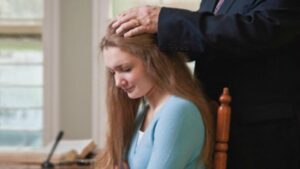
I married a man in the Mormon temple when I was 20 years old—a normal age for a student at BYU—the Mormon University in the heartland of Mormon Country: Utah. In the temple ceremony, my heart stopped when I had to promise to obey my husband. I had to make a covenant with God that I would listen to my husband—just as he listened to God. But what about my relationship with God? Could I not promise to listen to God without an intermediary? No. It was now through my husband that I accessed God. I hadn’t even realized that all this time my father had been my mediator to God. All this time I’d thought my access was direct.
And now this man I had married was always hesitant to give me blessings—something I craved, something that had been given so freely as I was growing up. I asked for them often, but there was often an excuse, pushing aside my request or questioning why I wanted blessings so frequently.
When I was barely 23, while I was pregnant with our first child, I gave myself to nature. My mantra was “I trust my body to know what to do.” This was a new time for me as I had started doubting a Heavenly Father and I looked inward to my divine feminine in my pregnancy. I felt a fire of maternal, womanly force creating a haven for this baby, and I knew Mother Nature would give me the strength to bring this baby girl into the world.
When the time came, I lay awkwardly draped in the hospital bed, my body urging a stubborn baby to move her way along. The baby wouldn’t comply, so while I lay among the cords and sheets, exhausted from a full day of all contractions and no food, my heart turned to my father for comfort. He was in the room while I waited for true labor to begin. Though my doubts in God had begun in the years before, I longed to feel a connection to that world. I wanted to ask my father for a blessing. I wanted to, but couldn’t. He was no longer my mediator to God; I knew I had to ask my husband. He was not accustomed to giving me blessings, always resistant, yet I still had to ask him. What he offered in response was half-hearted at best: fumbling over some insincere words about trusting the doctors and being patient. It was over in an instant. I ached to feel my father’s hands on my head. I longed to be seen by God and to hear Him speak to me.
…what about my relationship with God? Could I not promise to listen to God without an intermediary? No.
Three years later I was soothing our daughter through an ear infection. My husband worked nights as an independent contractor, and we did not have health insurance. I gave our daughter motrin. She still writhed in pain. I called the Emergency Room. They informed me it would be at least $500 just to see a doctor. We did not have $500 to spare. It was Friday night at 7 pm. A pediatrician would not be open. I sobbed as my only option was to call my daughter’s father and beg him to come and open our line to God. He would not. I asked if he could call our neighbor, a stalwart Mormon man who could also give a blessing of healing. He would not. He couldn’t be bothered to come home from work. It would cost us a lot of money for him to miss work, and he liked being at work. His refusal to call upon a neighbor for help was not authoritarian; it was awkward and hedgy, not wanting to trouble anyone. It was a denial of access as if this power were nothing—not necessary.
We hung up the phone, and as my daughter moaned on the couch, my anger burst into a small flame within my chest. Why could I, a mother, not place my hands upon my daughter’s head to call upon the powers of God? Why did I need a man to be my conduit to the heavens? I looked at my open hands and felt powerless. I gazed at my daughter’s head and ached to place my hands on her head, but I knew I could not heal her. Tears fell freely as I raged against the man who would not help us yet was our only path to the help we needed. At that moment I did not curse being a woman. I cursed God for not allowing me the power afforded to men.
I no longer believe in this system. I’m no longer in that marriage. I no longer believe parenthood is gendered, so I can’t believe one gender has more power than another. I no longer believe in a God who heals when called upon because I cannot believe in a God who chooses not to heal. And I really don’t believe in men who choose to hold their privileged power hostage.
My body never stopped speaking to me,
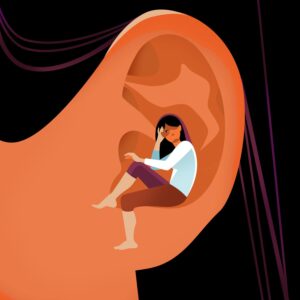
even when I wasn’t ready to listen.
Listen to the Episode
&
Share your Comments with us below!

